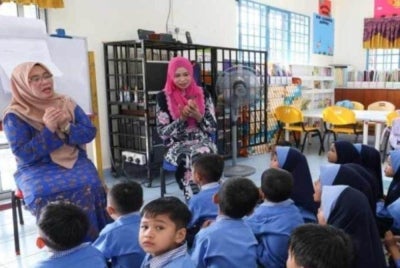Quality time, not rules: Keys to a strong parent-child bond
Adopting an investigative or authoritarian approach, psychologist cautioned, can discourage openness and hinder effective communication.
SHARIFAH SHAHIRAH
SHAH ALAM – Strong communication is the cornerstone of a healthy parent-child relationship, empowering children and promoting emotional well-being.
However, navigating sensitive topics as they grow older can be challenging.
Here, Malaysian Psycho Spiritual Well-being Association Deputy Chairman, Psychologist and Suicidologist Dr Adnan Omar offered valuable advice:
Listen
Adnan stressed the importance of listening to children without pressuring them to share information.
Rather than asking direct questions, he advised parents to simply sit back and listen, acknowledging even casual remarks made by their children. Adopting an investigative or authoritarian approach, he cautioned, can discourage openness and hinder effective communication.
Validate and Acknowledge Their Feelings
Parents often tend to downplay their children's problems or offer lengthy lectures in response to their disappointments.
However, Adnan stressed the importance of validating and acknowledging their feelings empathetically.
Responses such as "I hear you" convey empathy more effectively than attempting to solve their problems or dismissing their concerns.
Show Trust
Children seek approval and appreciation from their parents, fostering a sense of trust and autonomy.
Adnan recommended engaging children in discussions about responsibilities, privacy, and autonomy, setting acceptable boundaries together.
Praising and rewarding their efforts, he stressed, instills confidence and resilience, allowing them to learn from their mistakes and grow.
Don’t Be a Dictator
While parents may have extensive knowledge about the world, Adnan urged them to recognise their children as unique individuals with their own perspectives.
He emphasised the importance of explaining the reasoning behind rules rather than enforcing them blindly, fostering mutual understanding and respect.
Control Your Emotions
When faced with challenging behaviour from their children, Adnan advised parents to respond with kindness, using open gestures and inviting discussions rather than reacting with anger or frustration.
He reminded parents of their role as adults in the situation, advocating for calm and rational responses even in heated moments.
Do Things Together
Communication extends beyond verbal exchanges, with Adnan pointed out the importance of spending quality time engaging in activities both parents and children enjoy.
By sharing positive experiences without intrusive questions or criticism, parents can foster a sense of comfort and openness in their children.
Be Observant
In today's digital age, children may exhibit dynamic behaviour, especially as they navigate online activities.
Adnan stressed the importance of paying attention to changes in mood, behaviour, and daily functioning, which could signal underlying issues such as internet addiction.
Encouraging open-ended questions and offering support, he stressed, can help parents address potential challenges and seek professional help if necessary.
Download Sinar Daily application.Click Here!














